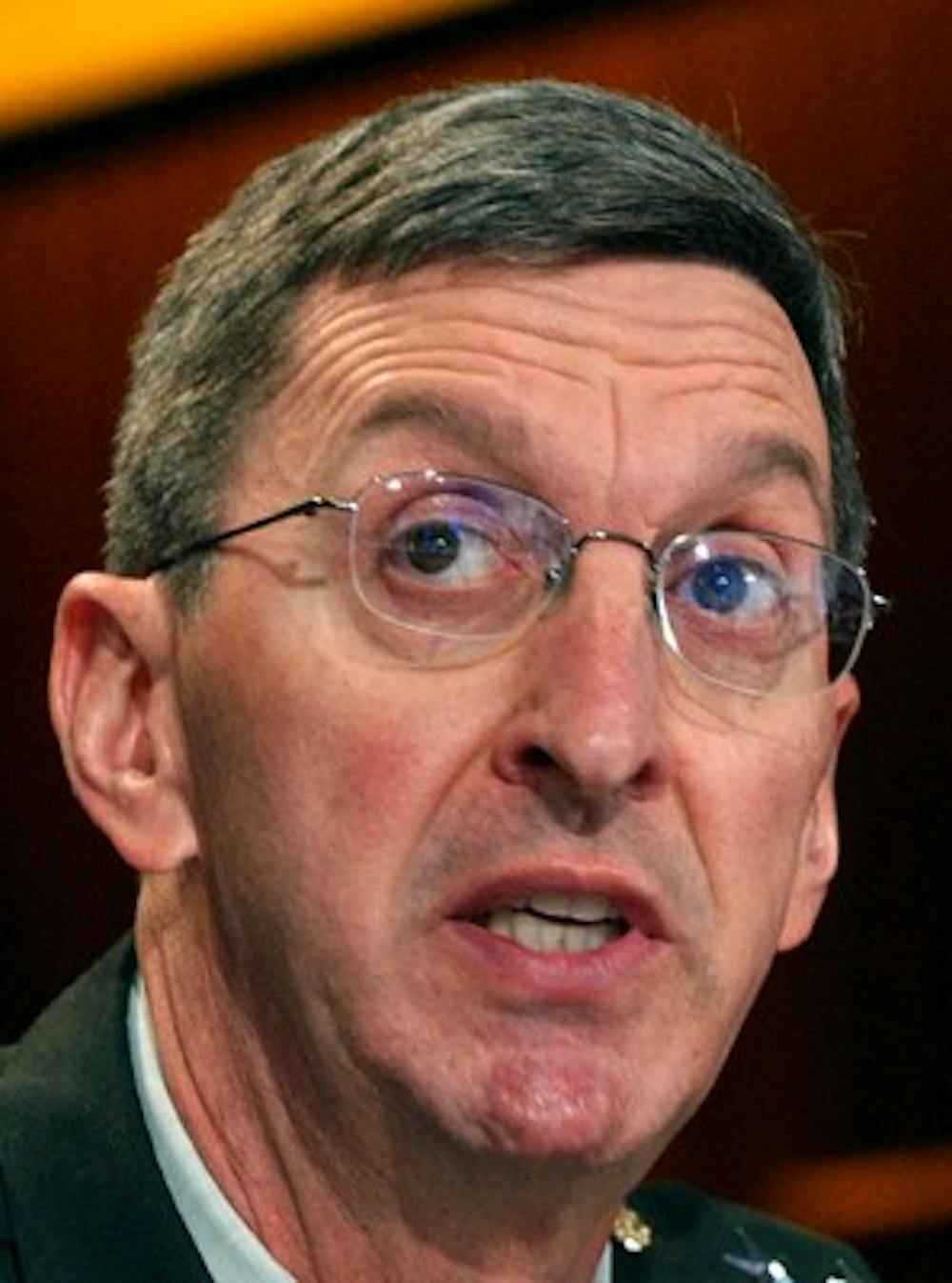The Sept. 21 death of an Indiana National Guardsman in the care of a medical unit at Fort Knox, Ky., appears to have been an isolated incident and not an example of widespread problems in care for wounded soldiers, the Army’s top civilian leader said Thursday.\nArmy Secretary Pete Geren told members of the U.S. Senate Committee on Armed Services in Washington that steps to fix problems that might have led to Sgt. Gerald Cassidy’s death have been taken, including the removal of the medical unit’s top commanders.\nBut he stressed the investigation surrounding the death of the Indiana National Guardsman was ongoing and would not discuss specific findings.\n“It’s a tragedy for the Army and a tragedy for his family,” Geren said, responding to questions from Sen. Evan Bayh of Indiana. “Thankfully, it has proven to be an isolated incident.”\nCassidy, 32, of Westfield, Ind., was wounded in a roadside bombing in Iraq in June 2006 and arrived at Fort Knox in April 2007 with blinding headaches, memory and hearing loss and post-traumatic stress disorder. He was found alone in his room on Sept. 21, dead and slumped in a chair.\nAn autopsy performed for his family determined Cassidy had been dead for hours before he was found and might have been unconscious for days before that.\n“The enemy could not kill him, but our own government did,” Bayh said during the hearing.\nBayh has asked the Army to turn over Cassidy’s medical records – both from his service in Iraq and once his care at Fort Knox began – and official reports on the roadside bombing in 2006.\nCassidy’s mother, Kay McMullen, of Carmel, Ind., said in a phone interview that the Army taking responsibility for his death is only a step in discovering what went wrong.\n“Because of the lack of care – and the incompetent care – he received, he’s dead,” McMullen said through tears. “And that’s unforgivable.”\nCassidy was assigned to the “warrior transition unit” at Fort Knox, one of 35 units created nationwide after treatment problems were discovered at Walter Reed Army Medical Center in Washington.\nA Government Accountability Office report in September, however, found that more than half the new medical units were not fully staffed.\nGeren said the commanders charged with caring for Cassidy had failed his family.\n“Three soldiers who were in his chain of command lost their jobs because of the way they handled this case,” Geren said. “It was unacceptable.”
Army leader: National Guardsman’s death at Fort Knox ‘an isolated incident'

Get stories like this in your inbox
Subscribe





